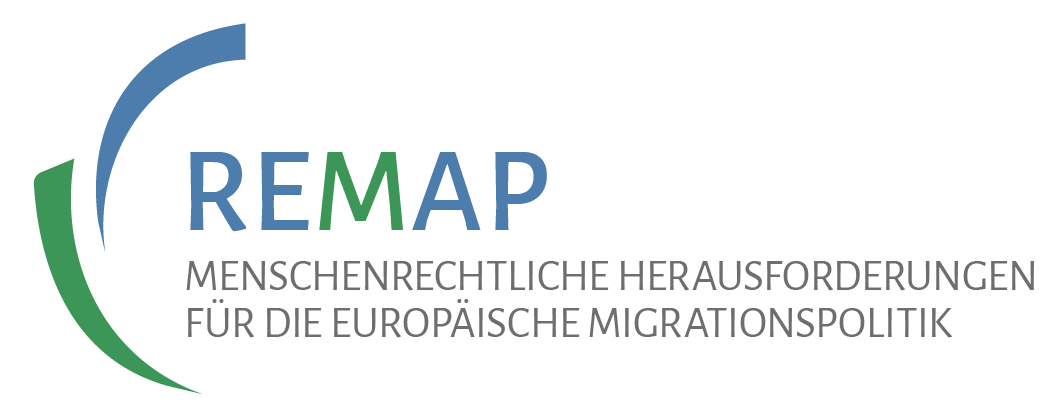Project description
REMAP is a research project to reassess the human rights limits and mandates of EU migration policy. The research was conducted from 2018 to 2022 and funded by Stiftung Mercator. The aim of the project was to produce a comprehensive study on „Human Rights Challenges to European Migration Policy“.
The study identifies the most pressing challenges, outlines the relevant legal standards, and provides recommendations for reform. Core issues are asylum seekers’ access to protection in the EU, personal liberty and free movement of migrants, safeguarding the rule of law in immigration proceedings, the prohibition of discrimination on any ground, including immigration status, respecting the social and family ties of migrants, guaranteeing minimum social rights for irregular migrants, and the public and private infrastructure necessary for defending the Human Rights of migrants.
Das REMAP team consisted of Prof. Dr. Jürgen Bast (project leader), Dr. Frederik von Harbou (scientific project coordinator, by now Professor at the University of Applied Sciences Jena), and Dr. Janna Wessels (now Assistant Professor of Migration Law at Vrije Universiteit Amsterdam; all members of the Giessen-based Research Network Migration and Human Rights). They have been supported by Saskia Ebert, who started as an undergraduate student assistant. She left the REMAP team in January 2021 to work for the Refugee Law Clinic at the Justus Liebig University Giessen.
A discussion paper (from August 2018) kicked off the project (download here). The German version of the document can be found here. The REMAP team invited the expert community to participate in the discussion with suggestions and criticism.
The project team collaborated closely with a Panel of Experts in the development of the study. The Panel consisted of international specialists from academia and practice as well as the German Institute for Human Rights (Deutsches Institut für Menschenrechte, DIMR) and the European Center for Constitutional and Human Rights (ECCHR) as institutional partners. Round table meetings were held with the members of the panel on September 3–4, 2018 and September 2–4, 2019, in which the concept and preliminary drafts of the study were discussed in detail.
Under the title "Free and equal in dignity and rights. Human Rights in the practice of migration law", the REMAP team, together with the Refugee Law Clinic Giessen, organized a public conference on the topics of the study on 30 January 2020 at the Justus Liebig University Giessen. The program and documents of the conference can be found here.
Key findings of the study were presented to the public and discussed with representatives from academia, the judiciary, politics, administration and civil society in Berlin on 27 October 2020, in cooperation with the German Institute for Human Rights. Further information and a video documentation (in German) and can be found here.
The first edition of the study has been available for download as an open access document here here since October 2020. The revised and expanded version was published in 2022 in the series "Schriften zum Migrationsrecht" by Nomos and Hart Publishing in hardcover and as an eBook. Further information on the publications can be found here.
The results of the study were discussed in a workshop for members and staff of the European Parliament (April 22, 2021) and in an expert discussion with representatives of German civil society and the Federal Ministry of the Interior (April 13, 2021), and they were incorporated into a comment on the "Draft General comment No. 5 (2020) on migrants' rights to liberty and freedom from arbitrary detention" (October 30, 2020) at the invitation of the Committee on the Protection of the Rights of All Migrant Workers and Members of Their Families (CMW). The comment by the REMAP team is available here.
Accompanying the preparation and dissemination of the study, the project members dealt with issues of human rights protection in the context of EU migration policy in lectures, discussion events and publications. An overview of the accompanying academic activities of the REMAP team can be found here.

